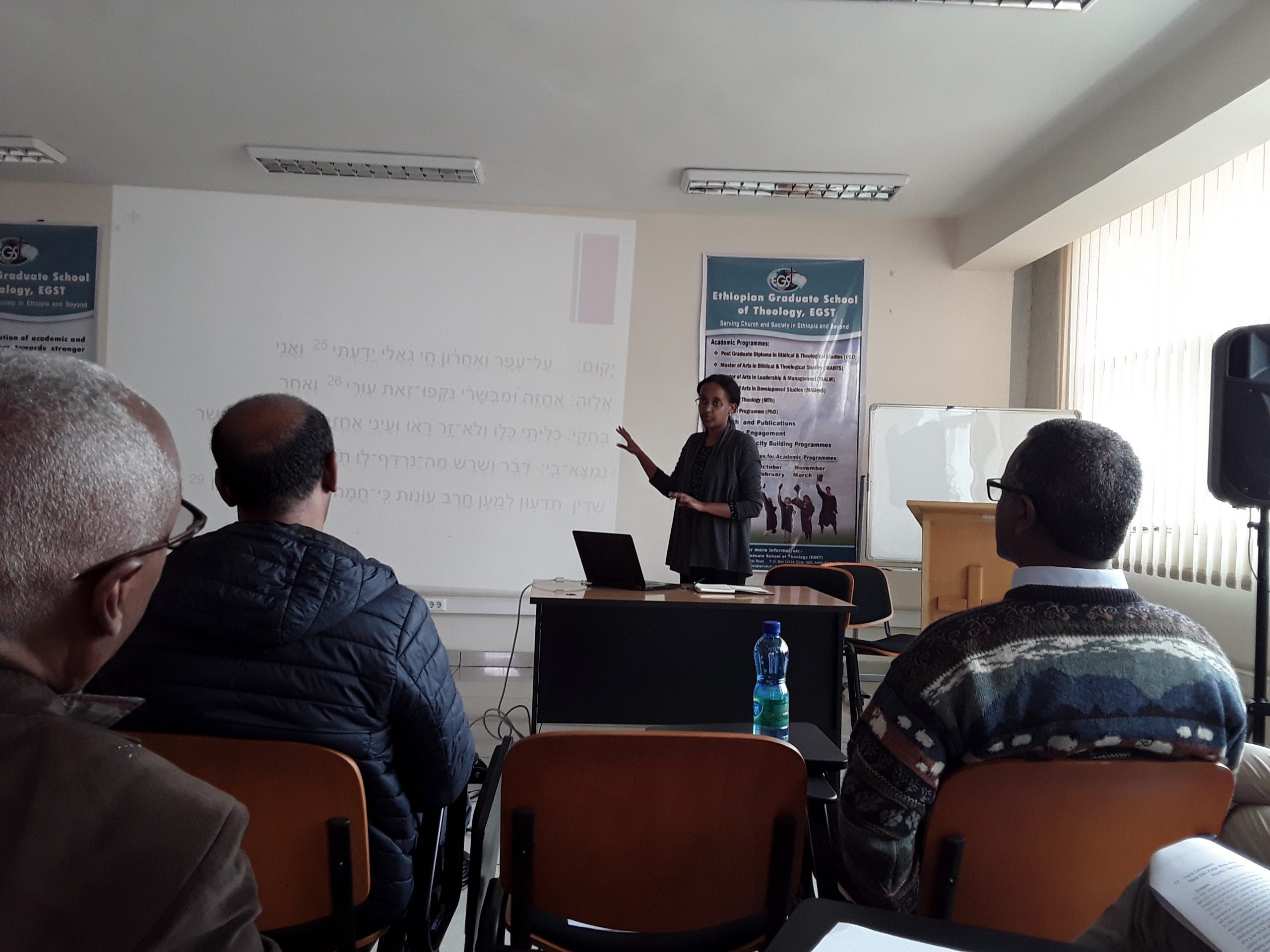The 2018 EGST graduates’ research dissemination workshop deliberated on the annual master thesis findings on August 17, 2018 at EGST. A total of 7sample theses were presented and discussed consisting of Theology and Biblical and Theological Studies, Management and Leadership and Development Studies. Graduates, faculty, staff, students and invited guests took part in the workshop.
Welcoming the participants on the occasion, Dr Theodros, EGST Dean of Academic Affairs congratulated the researchers and remarked that EGST has given due emphasis to research efforts and improving its library and resource access mechanisms with other partners in Africa and other places. He mentioned that the NetACT network will provide online portal access to resources beginning from 2019 which facilitates the research efforts of EGST community. He further encouraged the graduate researchers to develop a practical intent to their research; to learn more lessons from the research process; to find publication avenues and to advance their research skills.
Research dissemination strategies of EGST was presented by Mr. Addise Amado, Head of Development and Communications focusing on the rationale for research dissemination, examples of EGST research dissemination at international and national levels and the mechanism for the promotion.
It was also learnt that research is one of EGST’s strategic pillars which include master theses; thematic research projects; individual faculty research and publications; postdoctoral and sabbatical research outcomes and other studies such as alumni workshops. EGST also organizes events related to research dissemination such as annual Frumentius lectures, monthly academic seminars, and encourages the participation of faculty and staff in other national and international conferences. The envisioned Ethiopian Journal of Theology is also expected to serve as research publication and dissemination infrastructure for the future.
The objectives of the workshop is knowledge management; sharing of information as public common good; to promote evidence for decision making and policy changes ; to facilitate graduates’ skill and communication improvement and for networking opportunities as part of career development. [EGST PRC 2018]

